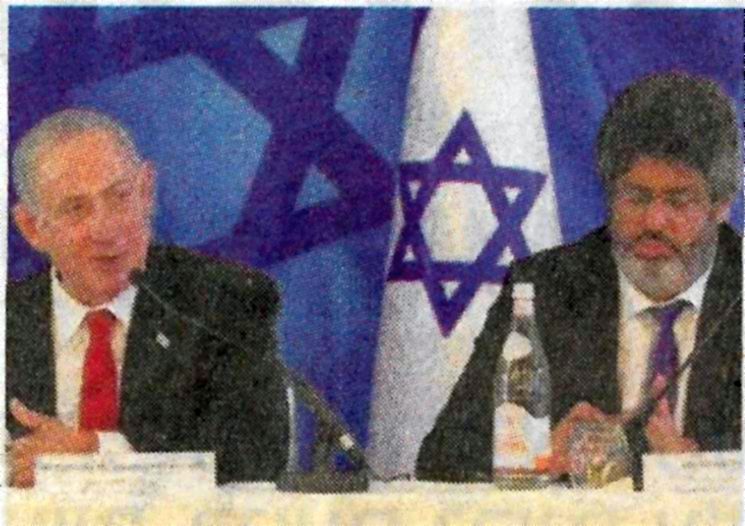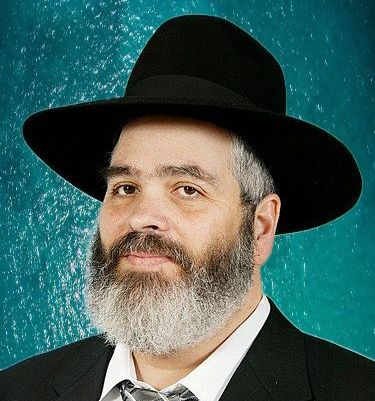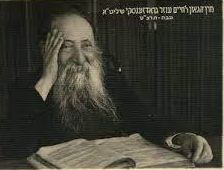  |
|
| |||||
This Google Custom Search looks only in this website. Deputy Minister Uri Maklev called Cancelled French MP Meir Chaviv
Maklev, spoke on Monday with Mr. Meir Chaviv, former member of the French parliament, after the French Legislative Council decided to halt the procedure of elections scheduled at the beginning of the week. Mr. Chaviv was 'accused' of the support of Israeli rabbis for his candidacy and that the French Jewish community voted on the claims of anti-Semitic persecution. This was in light of Chaviv's strong stand as a proud Jew in the French parliament.
An apartment owner will be able to install, at his own expense and without the consent of the other apartment owners, a device enabling automatic usage of a water pump without Shabbos desecration. This will be made possible through a bill proposed by the chairman of the Knesset Interior Committee, Rabbi Yaakov Asher.
The bill, first presented in the previous Knesset, details the conditions of the installation, such as prior notification of thirty days before the installation to the building representative and to all the home owners. The installing owner must obligate himself to reinstate the previous condition at his expense if there will no longer be a need for it.
Every economist with one opinion will be balanced with a colleague having an opposite opinion except that in a dictatorship like we effectively have in Israel, the media rules. Few are those who dare voice a different view.
One of them is Shmuel Slavin, the former CEO of the ministries of Treasury, and also of Labor and Welfare, a man who understands a thing or two about the economy but, strangely enough, no one has ever approached him to sign against the judicial reforms. Perhaps this is for the fact that he participated in past primaries of the Likud.
Slavin is convinced that all the warnings which have lately been aired regarding heavy economic repercussions about the Levine reforms will turn out to have been incorrect.
This extended historical series about the battles over the rabbinate in Vilna was originally published in 1995 (5755).
Part V: Conclusion
This series has discussed the background of Vilna, the Yerushalayim of Lithuania, and its rabbonus over a hundred years ago. We saw that the real position of Chief Rabbi of Vilna was left unfilled for more than a hundred years, out of respect, until the secular authorities insisted on the appointment of a rav to administer the registration of demographic information such as births, deaths and weddings. The community was required to appoint such a "rav meitaam," and the choice came down to a test of strength between the traditional side lead by HaRav Chaim Ozer, and the reformers and maskilim. Before his election, Rabbi Rubinstein, a former yeshiva student, promised Reb Chaim Ozer that he would stay clear of any involvement in Vilna's communal institutions. In return he was backed by Reb Chaim Ozer and elected.
Reb Chaim Ozer's forced absence from Vilna during the First World War enabled Rabbi Rubinstein to greatly increase his sphere of influence in Vilna's communal affairs, in direct violation of the promise he had given Reb Chaim Ozer upon his election. When the Polish government required the Jews to hold new elections in 1919, the chareidim were in a minority against the combined forces of secularists, Zionists and religious Zionists and they were powerless to prevent Rabbi Rubinstein's accession to the seat of the Vilna Rabbinate.
The last chapter chronicled the protest campaign led by the Chofetz Chaim to redress the terrible wrong that had been perpetrated against the honor of Reb Chaim Ozer and of Torah itself. We saw the letters issued by the Chofetz Chaim and the importance attached to the issue by the Chazon Ish. The press became very involved in the controversy.
The Appointment
Rain and Kinneret Watch by Dei'ah Vedibur
Staff
Our weekly report of the rain and the level of the Kineret -
Winter, 5783.
* * *
Outstanding Articles From Our Archives
IN-DEPTH FEATURES
by Rabbi Shlomo Lorincz
Chapter Three
Maran the Chazon Ish's Activities on the Public Front: The Commander Who Placed Soldiers at the Frontlines
The Chazon Ish's main concern was to increase the ranks of bnei Torah. The entire world was created only for their sake, and his prime concern was to develop talmidei chachomim who were totally immersed in Torah.
But at the same time, Maran was aware that we were engaged in a state of war with the secular leadership, and if we wished to establish and nurture the world of Torah we had no recourse but to mobilize loyal soldiers who would stand at the frontlines and devote their talents and energies to this holy war.
He therefore saw to it that there be public-spirited people toiling for the sake of the Torah public and the individual, representatives in the Knesset and in the municipalities who were subservient to daas Torah. Maran guided them all and accompanied their activities all along the way.
I remember how much time and labor he invested in this. First of all, in order to get me to agree to accept this mission upon myself (of going to the Knesset) and afterwards, with a tandem accompaniment of my work, guiding me every step of the way. From my first initiation into the Knesset, Maran would review every speech I prepared, offering his comments, making necessary changes and telling me what to say and what not to say.
By Rav Dov Eliach, head of Machon Moreshes Hayeshivos
Introduction: Master and Pupil
Rav Nosson Tzvi Baron was born in Tavrig, Lithuania and is named after his father's mentor, the Alter of Slobodka zt'l. As a young boy he was sent to learn in Telz and his life has been entwined with the world of Telz ever since.
Arriving in America after the war, he joined Yeshivas Telz in Cleveland and learned under HaRav Eliyohu Meir Bloch zt'l, who greatly befriended him. In time, he was entrusted with the task of publishing the writings of the Telzer roshei yeshiva and with the preparation of the famous Telzer Shiurei Daas for publication. This has been, and continues to be, Rav Baron's major literary contribution, though he also utilizes his writing talents for other yeshiva projects and for communal affairs. His latest sefer is the newly published Shiurei uPeninei Daas, which contains many wonderful ideas of HaRav Bloch's, based on manuscripts and shiurim, as well as important letters and articles that he wrote.
As we shall see very soon, Rav Bloch clearly articulated the sense of mission that he felt as one of the few survivors of the huge Torah center of Lithuanian Telz. He would invoke the words of Yonoson ben Shaul to Dovid: "Go, for Hashem has sent you" (Shmuel I 20:22). The clear implication is that even though flight may be imperative because of persecution, as it was in Dovid's case, in reality, it is a prompting from Heaven to undertake a mission of communal benefit.
Rav Bloch fulfilled his mission with energy and drive throughout his relatively short life - he was just sixty years old when he passed away. His activities to further Torah were manifold, raising thousands of talmidim - and articulating the message of Torah- true Yiddishkeit to further thousands - through his electrifying droshos. He has a large share in the development of the splendid world of Torah education that exists today in America.
One gets the feeling that Rav Baron has adopted this sense of mission of his rebbe's, channeling his every resource into fulfilling his duty as one of the last surviving talmidim of Telz, of arranging its Torah and its world of ideas for future generations. It is a mission that he carries out capably and with a discerning eye. There could be no one better to afford us a glimpse into the ideas and outlook of the man who carried Telzer daas to a new generation, in a new world.
|
|||||




.jpg)



